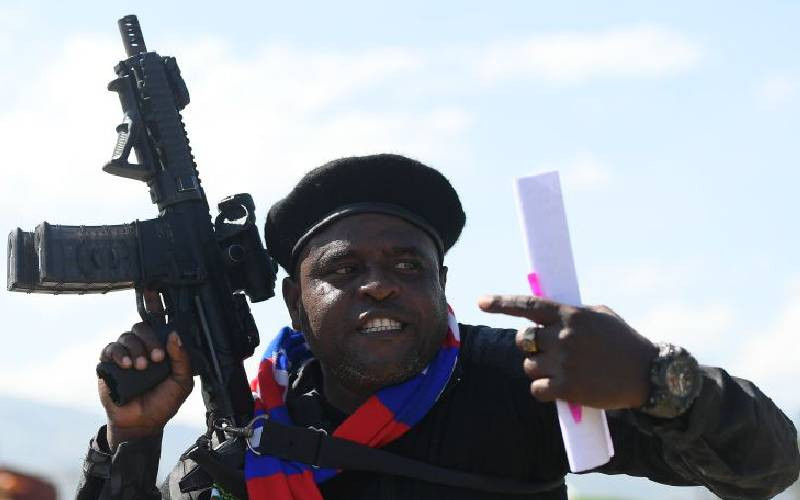
In the days following an approval by the United Nations for Kenya to send its police officers to Haiti to restore order in a country that has been run over by armed gangs, its most feared gang leader, Jimmy Cherizier, led a protest against the deployment.
Flanked by dozens of heavily armed men under his command, Cherizier, a former police officer turned leader of the internationally known and locally dreaded G9 Family and Allies gang, led a protest in the streets of Port-au-Prince against the UN and American-backed Kenyan-led stabilisation mission.